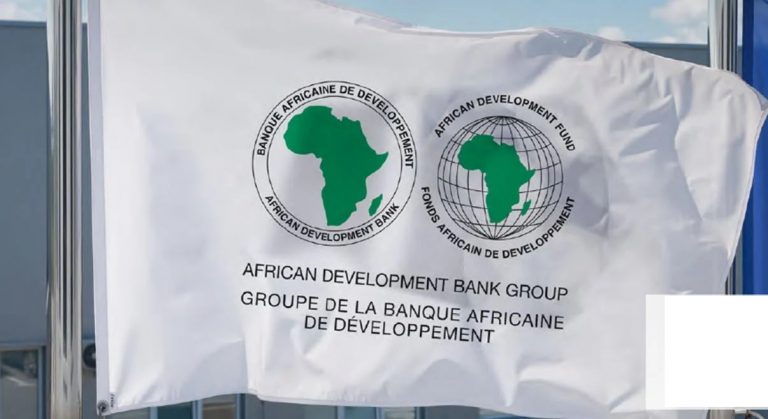
The African Development Bank (AfDB) has recorded a remarkable 241.9% increase in capital over the past decade, ballooning from $93 billion in 2015 to $318 billion in 2025.
This unprecedented expansion, the largest in the Bank’s history, comes as the institution prepares for a major leadership transition at its Annual Meetings in Abidjan, Côte d’Ivoire.
During a press briefing with journalists on Monday, AfDB President Dr. Akinwumi Adesina reflected on his ten-year tenure, describing it as a mission rather than a job. He spoke of his sacrifices and the dedication required to lead a pan-African institution at such a scale.
Register for Tekedia Mini-MBA edition 19 (Feb 9 – May 2, 2026).
Register for Tekedia AI in Business Masterclass.
Join Tekedia Capital Syndicate and co-invest in great global startups.
Register for Tekedia AI Lab.
“This is not a job. If anyone is looking for a job, please don’t take it. This is not a job. This is a mission,” Adesina said. “As my wife Grace and staff would tell you, for ten years I have had no life. Completely zero. I worked every single day. Every single step.”
Under Adesina’s leadership, the Bank secured $8.9 billion in the latest replenishment of the African Development Fund (ADF), the concessional financing arm that serves Africa’s low-income countries, and says it has delivered development outcomes that have positively impacted over 500 million people. The AfDB also maintained its triple-A credit ratings throughout his presidency, allowing it to leverage global capital markets to finance major infrastructure and social projects across the continent.
He emphasized that despite the leadership change set for later this year, the institution’s direction remains steadfast.
“Leadership may change, but the mission remains. The Bank’s direction is clear, its resolve strong, and its commitment to Africa’s development unshakable,” Adesina told reporters.
This year’s Annual Meetings, scheduled from May 26 to 30, are expected to be the largest in the Bank’s history, drawing over 6,000 participants from 91 countries — including finance ministers, central bank governors, private sector players, civil society groups, academics, and development partners. The gathering will serve as a platform for high-level dialogue on Africa’s economic future under the theme: “Africa’s Transformation, the African Development Bank Group, and Reform of the Global Financial Architecture.”
The event also marks the end of Adesina’s presidency and the selection of his successor. The Board of Governors will decide on May 29 who will take over as the Bank’s new president.
The five candidates are Swazi Tshabalala of South Africa, currently the AfDB’s Senior Vice President; Hott Amadou of Senegal, a former Minister of Economy and Bank alumnus; Samuel Munzele Maimbo from Zambia, a senior financial inclusion expert at the World Bank; Sidi Tah Ould from Mauritania, a veteran in Islamic finance; and Abbas Mahamat Tolli of Chad, the current head of the Bank of Central African States.
The new leader will inherit a financially stronger institution but also a continent grappling with complex challenges: widening infrastructure gaps, surging debt burdens, limited access to energy, and worsening climate vulnerabilities. The AfDB has positioned itself as a key player in tackling these challenges through initiatives such as Light Up and Power Africa, Feed Africa, Industrialize Africa, and Improve the Quality of Life for the People of Africa. These programs, launched during Adesina’s tenure, have helped refocus development priorities around inclusive growth and sustainable investment.
The upcoming leadership will also have a central role in supporting the rollout of the African Continental Free Trade Area (AfCFTA) — a flagship African Union initiative aimed at creating a single market of 1.4 billion people with a combined GDP of over $3.4 trillion. AfDB has been one of the key institutions supporting the AfCFTA, providing financing and technical support to enhance regional infrastructure, improve trade facilitation, and build capacity among small businesses to tap into cross-border markets.
AfCFTA is considered Africa’s most ambitious economic integration initiative since independence, and the Bank has stressed that its success will depend on unlocking investment, harmonizing regulations, and lowering logistics costs across borders. Adesina has previously stated that The AfCFTA is not just a trade agreement; it is a development instrument.
The AfDB sees itself as a central enabler in this agenda. Its efforts to connect landlocked economies to seaports, expand digital infrastructure, and support cross-border power and transport projects are aligned with the broader goal of boosting intra-African trade, which currently accounts for less than 15% of total trade on the continent. If fully implemented, AfCFTA could lift an estimated 30 million people out of extreme poverty and increase Africa’s income by $450 billion by 2035, according to the World Bank.
As the Bank prepares to usher in new leadership, the emphasis remains on continuity of purpose. However, the expanded capital base, institutional resilience, and sharpened continental priorities leave the incoming president with the tools needed to steer Africa’s premier development finance institution into its next phase.



